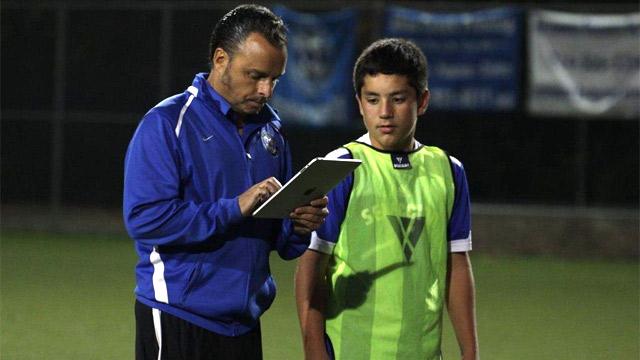
By Chelsi Ricketts, M.Sc. |
The world around is exceedingly digitalized, with emerging technologies transforming how we work, learn, teach, communicate, and play. Given the enduring nature of technology, it is important that we consider the ways in which we can use these devices to enrich our lives. Technology has brought improvements to the home, workplace, and classroom. Therefore, it is likely that its positive impacts may extend to the playing field and various other sport settings. Exploring the ways in which coaches can incorporate technology into their coaching methods is promising for promoting athlete development.
Today’s youth are considered to be ‘digital natives’, born to speak the language of the internet, video games, smartphones, computers, among other digital devices. Given their reported knack for technology, coaches can take advantage of the affordances of various devices and media to instruct athletes in ways that are exciting and familiar to them.
Technology as a Facilitator of Communication
Effective communication is a keysport skill for coaches. To promote success, coaches must clearly communicate feedback, instructions, feelings, goals, expectations, strategies, and standards to their athletes. Technology is a known facilitator of communication, especially given that individuals tend to be in possession of a device at any given time. Word has it that youth are comfortable conversing using digital technology, granted their familiarity with these devices. Therefore, coaches can utilize social networking apps (1) to communicate with their athletes or teams at the snap of a finger, (2) or to keep athletes informed of developments related to training, competition, and meetings. Specifically, a coach may send training goals/objectives to their athletes beforehand to promote mental preparation and motivation for the upcoming training session.
Technology as an Avenue for Teaching Sport Skills
The teaching of various sport skills is central to coaching. In youth sports, coaches work on teaching foundational sport skills (e.g., throwing), demonstrating movement patterns, and refining the technique of their athletes. By incorporating the use of technology, youth sport coaches can teach sport skills in a manner that is stimulating to athletes. Namely, a coach may use videos or animations to provide demonstrations, visual feedback, or demonstrate athlete progress. For teaching purposes, a youth sport coach may record a short video of an athlete fielding a ground ball. By replaying the video to the athlete, the coach can share whether technical skills like proper hand positioning was performed correctly, or with errors. Coaches may also use instructional videos recorded by themselves or others (e.g., on YouTube) to illustrate proper technique and provide feedback.
Technology provides youth sport coaches with innovative means to engage their athletes. Whether it be supplementing one’s existing coaching strategies with technological resources, or utilizing technology to gain additional coaching knowledge (e.g., new drills or strategies), the opportunities provided by digital technology to the sporting world are endless and exciting. It is only fair that we take advantage of these possibilities for promoting positive youth development through sport.
Chelsi Ricketts is a Ph.D. student at Michigan State University, with a focus of study in the Psychosocial Aspects of Sport and Physical Activity. She holds a Bachelors of Science degree in Psychology, with a minor in Gender and Development Studies, as well as a Master’s of Science Degree in Clinical Psychology from the University of the West Indies, Mona. Chelsi’s academic and professional interests surround positive youth development through sport, as well as body image in sport.